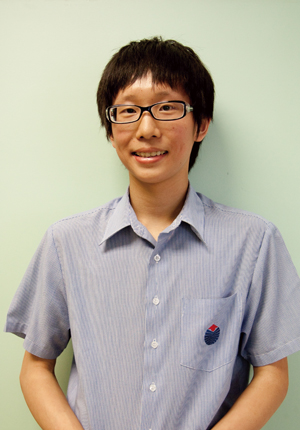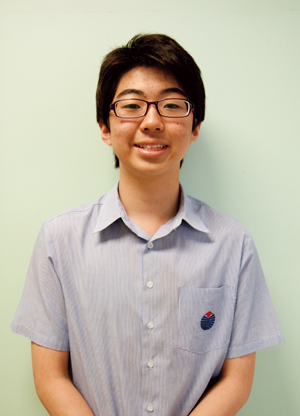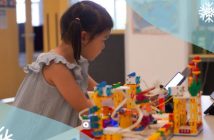This year, Beijingers only saw a sliver of spring and experienced the chill of a prolonged winter instead. Whether climate change is the culprit is debatable, but we can no longer deny that sea levels are rising, ice caps are melting, volcanoes are erupting and earthquakes are brewing. The students of Yew Chung International School of Beijing expressed their growing concern about climate change, why they think it is real and what developed countries can do to lessen their impact on our planet.




From left to right: Steven Chun, 15, South Korea; Katie Dark, 15, Australia; Gemma Golding-Duffy, 15, UK; Seung Hyun, 15, South Korea
When did you first hear about climate change?
Gemma: In 2005, The Day After Tomorrow made people really scared. It seemed quite logical, but I found out that it wasn’t that accurate. I think climate change is happening, but it’s not as drastic as movies make it out to be.
Steven: When 2000 was approaching, the world was warned about a great chaos and my Mom believed it. She bought a lot of water and food, but nothing happened. Filmmakers shouldn’t exaggerate the effects of climate change. The world has seen too many movies and now they don’t believe [that climate change is real]. We shouldn’t create false numbers and facts.
Does climate change affect your life?
Seung Hyun: When it should have been spring, it was still cold and windy.
Steven: Right now, there is no spring. In Seoul, my aunt says that spring is also disappearing.
Katie: Last year, spring came way too early in Europe, and then the weather suddenly changed back and forth and a lot of animals died.
Is climate change real?
Seung Hyun: I believe climate change [is real]. I have seen a lot of sudden fluctuations in temperature. There was a big river in China that evaporated, and sand flew to South Korea. Maybe people who do not believe in climate change are not feeling the effects.
Gemma: How else would you explain the change in temperature, without attributing it to climate change? You could either ignore it or you can admit that it’s happening.
Steven: Don’t try to argue that climate change is not happening, because we can see that the world is changing every day because of us. In Australia, there is a large ozone hole and if you stand there for just one hour, you will get sunburn under your nails.
Are you worried about climate change?
Gemma: Animals and plants are becoming extinct, but soon it will affect us and it’ll be too late to do anything about it.
Katie: What worries me the most is that people are not making an effort to do anything about it, even though we know it’s happening.
Seung Hyun: Right now, I’m worried that people’s attitudes are quite bad, like Katie said.
Steven: I feel like the [developed world]is pushing their responsibility of climate change onto people in undeveloped countries. We should never forget that MEDCs (More Economically Developed Countries) started industrialization.
Do you think it’s important for countries, like the US, to recognize climate change?
Steven: China, India and the US have the most cars in the world, and as far as I know, the US emits the largest amount of harmful gases. The US already has the money to take on the responsibility. It’s not only their world; it’s our world too.
Katie: I think countries, like the US are hesitating [to sign the Kyoto Protocol], because it’s inconvenient. But what they’re not thinking about is how inconvenient it will be if they don’t do it.
Do you think the environment can be saved?
Steven: I don’t think we can save it, but we can try our best to reduce the speed of change.
Katie: We also have to keep in mind that the climate does naturally change over long, long periods of time. We have been in and out of ice ages. We just need to let the climate change by itself.
Seung Hyun: It depends on people’s attitudes. The future is not written yet.
Gemma: I don’t think we can ever get it back to the way it was before, but we can try to keep it in it’s current state. If everyone makes a little sacrifice, it will help in the end.
What can people do to save the environment?
Steven: My family uses public transportation. I turn off as many lights as possible, even though I’m afraid of the dark. Also, our school recycles through clothing drives and book exchanges.
Gemma: I recycle paper a lot, unplug chargers, conserve water, switch off the lights, and reuse shopping bags. And recently, my sister and I held a fashion show for Global Community Day. All the clothing was made out of recycled material, such as newspaper or plastic.
What can Beijingers do to help the environment?
Gemma: I don’t think Beijingers should buy too many cars. And people should cut down on smoking and stop littering.
Katie: People need to get in the habit of sorting through their rubbish.
Seung Hyun: When I first came to China, it was really dirty and cloudy. However, after the 2008 Olympics, Beijing became really clean; I can see blue skies and the floors are cleaner. They should continue this effort.



